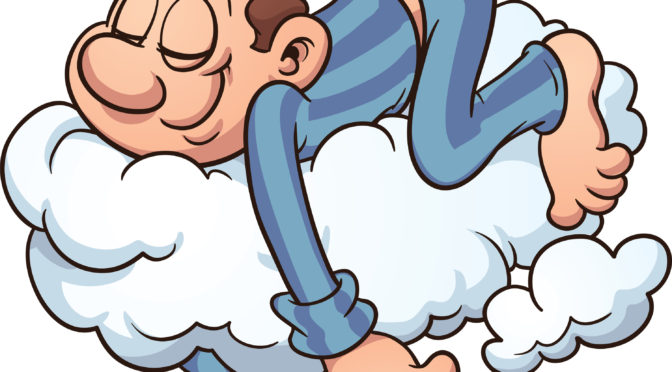Based on my new work schedule, I now qualify to be two out of the Seven Dwarfs: Sleepy and Dopey.
The start of my work day recently shifted from 5 p.m. to 6:30 a.m.
For someone like me who is naturally a morning person, this was great but the change put sand in my gears – and felt like in my eyes as well.
I have always been an early riser, dating to when I was 13 and delivering The Daily News in the Bronx.
I was thrilled to get a jumpstart on the day and watch the city transition from slumber to wakefulness.
That all changed 2.5 years ago, when I started a job in New York City that required me to work nights.
Instead of getting to bed at 10:30 p.m., I was leaving the office by then or much later, like 12:30 a.m.
The whiplash meant resetting my natural body clock.
On the plus side, commuting home was easy because you could fire a cannon on the highway and not hit anything.
The downside was that in the mornings I would sleepuntil 10 a.m. (if I was successful at fighting the urge not to wake up earlier), and I would almost always feel like I was merely waiting to leave for work in the afternoon.
I felt too restless or time-constrained to get anything useful done.
I no sooner got (somewhat) adjusted to my late hours than my schedule shifted to a 6:30 a.m. start time.
So now instead of getting to bed at 3 a.m., I get up at that hour.
Doing that kind of yo-yoing with your sleep does weird things to your body.
For instance, I am ready to slam back a Red Bull by 9:30 in the morning and by 10:30, I am ready for lunch.
It is also weird that as noon draws near, and most people are getting ready for lunch, I am looking ahead to soon leaving.
It is great that I get to be home with my wife for dinner but now I get to bed around 8:30 p.m., my bedtime when my age was in the single digits!
At my age (closing in on 53), these kinds of adjustments do not come easily. I have as much capacity to bounce back as a deflated basketball.
I lose track of what day it is, time becomes a blur and focusing on details on the job requires even more concentration, which, you guessed it, makes me even more tired.
I need a steady flow of coffee to keep me from face-planting into my keyboard.
I know from friends who pull long days or shifts in the middle of the night the challenges of being sleep-deprived.
I appreciate the importance of sleep for your mental health, regulating blood sugar, rebooting your brain and other functions, but what can you do when this is what your job or life requires?
I’d like to hear your stories of a fractured sleep-work cycle and what happens to you when you get too little sleep. How do you cope? Any insights or remedies to offer?
Write me at amr@aboutmenshow.com.
While I await your emails, I have to wake up and inhale the coffee.
Related content:

